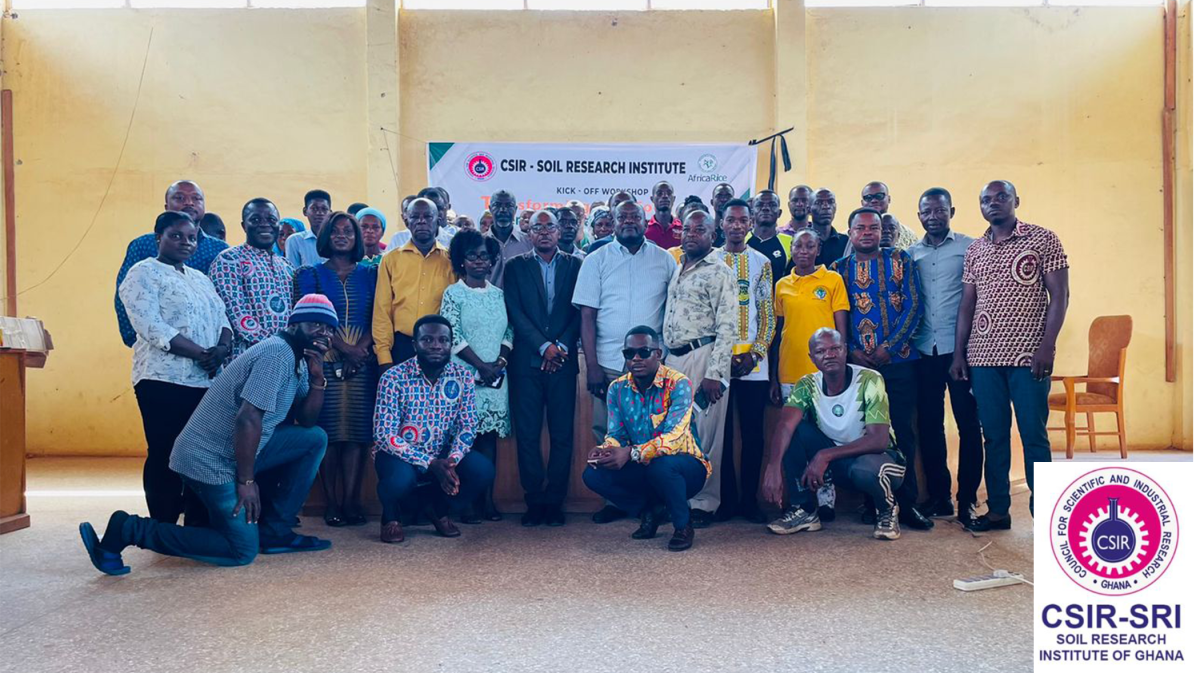CSIR-SRI HOLDS WORKSHOP ON TRANSFORMING AGRI-FOOD SYSTEMS IN WEST AND CENTRAL AFRICA AT MANKRANSO IN AHAFO ANO DISTRICT.


Key stakeholders gathered together at Mankranso in the Ahafo Ano South West District of Ashanti Region, Ghana on Thursday, 16th November 2023, at Kick-off workshop aimed at boosting food diversification and integrating fish into the rice-based production system, which would help Ghana push closer to achieving food and nutrition security.
The project titled “Transforming Agri-Food Systems in West and Central Africa (TAFS-WCA) is in partnership with the Department of Agriculture in the Ahafo Ano South West and Ahafo Ano South East Districts to roll out the project.
Dr. Emmanuel Dugan, a research scientist at the CSIR-Soil Research Institute, represented the acting director, Mr. Gabriel Willie Quansah, said the project seeks;
- Test appropriate and promising diversification options in rice-based systems with vegetables and legumes on fish fields.
- Evaluate the agronomic and economic performance of integrated rice-fish systems.
“The approach will be a participatory on-farm demonstration of rice-fish integration and rice-vegetable rotation systems, with some selected farmers, he added. He again urged the farmers and other stakeholders to put in their all to make this project a success.
Presenting on the TAFS-WCA project, Dr. Ephraim Sakyi-Annan, a research scientist at CSIR-SRI and the focal person for the project, said to mitigate the negative impact of mineral fertilization on the environment while meeting the consumption demand of rice in Ghana, there is the need to diversify rice-based systems by adopting nature-based solutions such as integrating rice with fish, vegetables and legumes towards achieving food and nutrition security and wealth-creation.
The study areas are Bronikrom in the Ahafo Ano South West district for the demonstration of rice–vegetable and rice legume rotation systems and Adugyama, in the Ahafo Ano South East district, for validation of rice-fish integration.
The TAFS-WCA project is funded by the Africa Rice Center (AfricaRice), (Ivory Coast) in partnership with the Council for Scientific and Industrial Research-Soil Research Institute of Ghana (CSIR-SRI) and the Ministry of Agriculture (Fisheries commission).
The overall goal of the CIPA project is therefore not only to contribute to enhanced food security and poverty alleviation but also to biodiversity conservation and climate resilience for local communities.
The workshop drew together rice farmers, researchers, opinion leaders and officials from the Ministry of Agriculture to discuss the ongoing research and lessons that could be learned from current practice. The interaction and participation of rice farmers, and representatives provided a positive forum for raising the diverse elements of rice production in the various local communities.